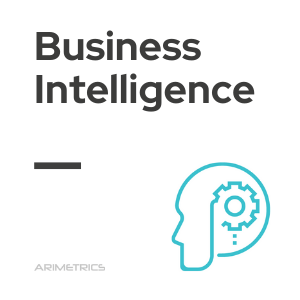
Definition:
Business intelligence, or Business Intelligence (BI), refers to a set of tools and systems that play a key role in the strategic planning process within an organization. These BI systems enable a company to collect, store, access and analyze corporate data to assist in making informed decisions. In general, BI systems help improve business intelligence in areas such as customer profiling, customer service, market research, market segmentation, product profitability, statistical analysis, and inventory and distribution management, among others.
Business Intelligence Software
Most companies collect a lot of data from their business operations. In order not to lose sight of this information, a company should use a wide range of software programs, such as Excel, Access, and different database applications for various departments throughout its organization. The use of various software programs makes it difficult to retrieve information in a timely manner and carry out data analysis. For this reason, Business Intelligence programs are used, which bring together all the others and facilitate the task.
BI programs can also incorporate forms of advanced analytics, such as data mining, predictive analytics, text mining, statistical analysis and big data analytics. In many cases, however, advanced analytics projects are run and managed by independent teams of data scientists, statisticians, predictive modelers, and other skilled analytics professionals, while BI teams oversee the analysis of the simplest business and query data.
Databases in Business Intelligence
In the field of business intelligence, data is typically stored in data warehouses, which are centralized repositories designed to contain subsets of a company’s relevant information. These data warehouses allow organizations to consolidate large volumes of information from different sources, facilitating its analysis and exploitation for strategic decision making. With the growing volume and variety of data generated today, technologies such as Hadoop are increasingly being integrated into Business Intelligence architectures.
Hadoop provides a robust platform for managing unstructured data, such as text files, sensor data and massive logs, which are traditionally difficult to handle with conventional database systems. Before data is used in BI applications, it is essential that raw data from various sources is integrated, consolidated and cleansed. This data preparation process ensures that the information analyzed is accurate and consistent. Data integration and data quality tools play a crucial role in this process, enabling companies to cleanse and harmonize data for reliable and actionable insights.
Business Intelligence and Big Data
Big Data is increasingly being used in conjunction with business intelligence and analytics applications. Many BI vendors have developed new tools to support Hadoop. For example, SAP offers connectors for Hadoop in its SAP BI and Business Objects solutions. BI vendors’ support for Big Data typically includes:
- Connector integration: Facilitates the movement of data from Hadoop to BI tools.
- Data visualization tools: Enable more accessible and understandable analysis of data stored in Hadoop.
Tools used in Business Intelligence
In the field of business intelligence, there are a number of tools that facilitate data collection, analysis and visualization. These tools enable companies to make informed decisions based on accurate and up-to-date data. Below are some of the most popular tools used in Business Intelligence:
- Tableau: Tableau is a data visualization tool that allows users to create interactive charts and dashboards. It is known for its ease of use and its ability to handle large volumes of data from a variety of sources.
- Power BI: Developed by Microsoft, Power BI is a business analysis tool that allows users to connect, model and visualize data interactively. It offers integration with other Microsoft products and is ideal for companies already using the Microsoft ecosystem.
- QlikView: QlikView is a BI tool that provides visual analysis and allows users to explore data in an intuitive way. Its associative data model makes it easy to search and discover relevant information.
- SAP BusinessObjects: Part of the SAP suite, this tool offers complete BI solutions, from reporting to advanced analytics. It is widely used by large organizations to manage and analyze business data.
- Looker: Looker is a cloud-based BI platform that allows users to explore and share insights through customized reports and interactive dashboards. It is ideal for companies looking for a scalable and collaborative solution.
- Domo: Domo is a business intelligence platform that integrates data from multiple sources and provides real-time visualizations. It offers collaboration tools and is suitable for companies that need a comprehensive BI solution.
- IBM Cognos Analytics: IBM Cognos offers analytics and reporting capabilities, providing companies with tools to create dashboards and perform detailed data analysis.
- MicroStrategy: This tool offers data analysis and visualization solutions, enabling companies to develop customized analytical applications to improve decision making.
- Oracle BI: Part of the Oracle suite, this tool offers business analytics capabilities, including reporting, predictive analytics and data visualization, suitable for large enterprises with complex BI needs.

